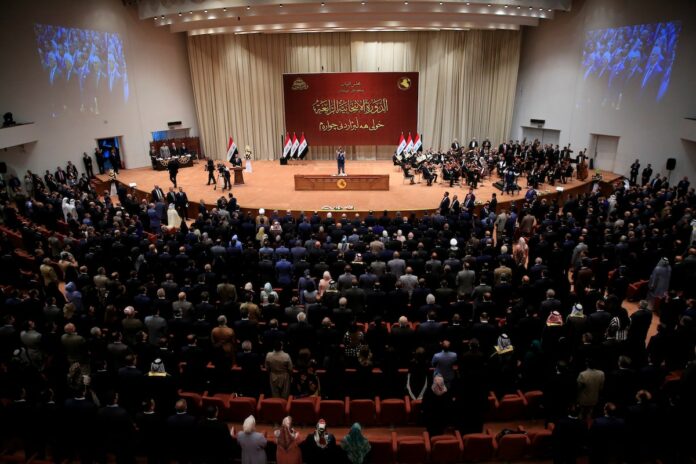Firas Tariq Makiya/ Political Researcher
The collapse of the totalitarian regime led to the collapse of the first Iraqi state (1921-2003) and was an official sign of the failure of the state project, and the failure of the political and cultural elites to reach a national identity that expresses a just and satisfactory formula; To share power and wealth among the components of the population after the state was established based on sectarian and ethnic discrimination, which amounted to genocide in the 1991 Iraqi uprisings and the Anfal campaign.
The political system of the second Iraqi state was established – a backlash to the previous failure – as outlined in the 2005 constitution on consensual democracy; The lack of trust between the components for fear of one of them monopolizing the power, which would repeat the tragedy of the previous bitter experience.
Consensual democracy ensured the division of power and the state among the components in a way that does not allow the return of militarism, totalitarianism, dictatorship, or autocracy again, and thus provided the necessary balance in power that prevents it from being monopolized by any party.
However, consociational democracy is another title for the failure to build the national identity; It led – as expected – to fail again in the building of the state, preventing the emergence of a strong and coherent state and reinforcing the divisions that already exist only to prevent the collapse that actually occurred twice in 2006 and 2014, and yet the system persisted with a surprising historical miracle.
Although, the variables of the political reality that governed the equations of establishing the regime have differed greatly, resulting in a disturbance in the balances that have maintained the power distribution system over the past two decades. The political forces controlling the representation of sectarian and ethnic components have disintegrated, and their monopoly on representing their components has been broken, which has awakened to the partisan game and has traded with the basic identities of the components. The partisan forces began lining up behind other political axes, without implying transcending the sectarian and ethnic reality, or transcending the reality of mistrust, even if its level decreased to a large extent. Sensitivities between components cannot easily be completely dissolved in an anxious country like Iraq, no matter how loud the national slogans are.
The shifting equations of the rotation of power have severely disturbed the balances in its distribution. This necessarily leads to the inevitability of changing these equations in a way that guarantees the preservation of balances and prevents the monopoly of power by one party through democratically legislated methods, unless this contradiction is addressed between the consensual balances drawn up by the 2005 constitution, and the changing reality in 2021. The struggle for power may not continue within the equations of peaceful trading, as its signs appear from time to time.
The foundations of the new balances must be parallel to the changes in the political game that have begun to turn into a partisan conflict. This is a sound development for the political process if the political parties were real programmatic parties, and not just electoral blocs centered around leaders “figures”. Balances based on partisan foundations, of course, differ from those between the components, and this necessitates the transition from consensual democracy to majority democracy, and the current blockage is nothing but harbingers of this transition, which political forces must comprehend.










